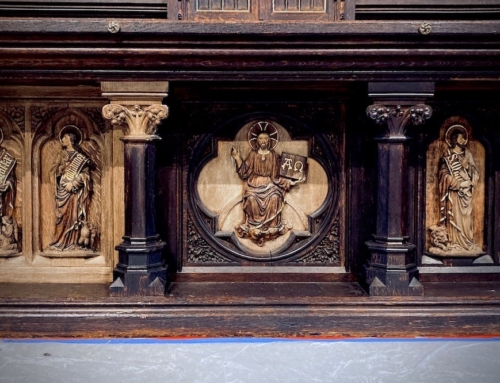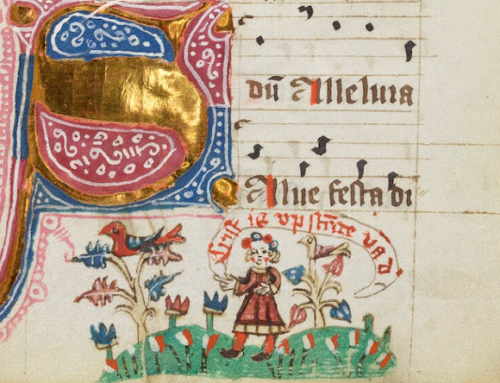The antagonists in the story of salvation history rarely receive recognition in the Christian calendar. No holy day is named for Cain or Jezebel, Herod or Diocletian, Topcliffe or Calles. Judas, however, is the exception. Today is popularly known as Spy Wednesday, named for the renegade disciple who, as today’s Gospel explains, was spying on Jesus, looking for “an opportunity to betray him.” Spy Wednesday, consequently, constitutes something like an anti-feast, a day to remember not a virgin, martyr, or confessor, but a traitor.
But why draw attention to Judas? Is it simply to explain how the arrest and trial of Jesus came about, or is there more we can learn from reflecting on the person of Judas and his disastrous fall?
Judas was truly a disciple of Jesus. Indeed, he was his trusted friend (cf. Ps 41:10; Matt 26:50). He was also an apostle, one of the twelve chosen by the Lord himself “to be with him, and to be sent out to proclaim the message, and to have authority to cast out demons” (Mark 3:14-15).
As such, Judas witnessed Christ’s life and ministry from a privileged vantage point, not as a mere spectator but as an active participant. With his own ears, Judas heard the grunts and squeals of the pigs into whom Christ sent the possessed man’s demons (Luke 8:26-39). With his own hands, he touched the miraculously multiplied bread and fish (Matt 15:32-39). With his own eyes, he looked through the stormy mist to see Jesus and Peter walking on water (Matt 14:22-33).
And yet, after all this, with his own lips, Judas kissed the God-man’s cheek to single him out for his unmerited arrest (Matt 26:47–50).
Judas’s story is tragic, to be sure, but our provident God wastes nothing, not even sins. Saint Thomas Aquinas explains:
Even when God punishes men by permitting them to fall into sin, this is directed to the good of virtue. Sometimes indeed it is for the good of those who are punished, that is to say, when men arise from sin more humble and more cautious. But it is always for the amendment of others, who seeing some men fall from sin to sin, are the more fearful of sinning. (ST I-II, q. 87, a. 2)
Judas could have repented of his sin and arisen more humble and more cautious, but he did not. We, however, seeing how he cascaded from sin to sin, from theft and greed to treachery and despair, can learn from his fall. Judas shows us that it really is possible to be an intimate companion of Christ and to turn away from him, to receive grace, and then reject the gift.
Yet the warning of Spy Wednesday is by no means the last word. Our anti-feast comes just before the Sacred Triduum, the holiest days of the year, when we direct our focus once again to those very mysteries by which we have hope. As Spy Wednesday reminds us that it is possible for us to fall, the Triduum reminds us of the more astonishing truth that it really is possible for us, poor sinners though we are, to be forgiven of all our sins—even the worst transgressions—and to share abundant life with God forever.
May our reflecting on Judas today help us to be ever vigilant in the struggle against sin and ever dependent on Christ and the victory he won for us. By God’s grace, may we persevere to the end and one day be welcomed into heaven by the saints—those with proper feasts.
✠
Image: Fyodor Bronnikov, Judas (Public Domain)







